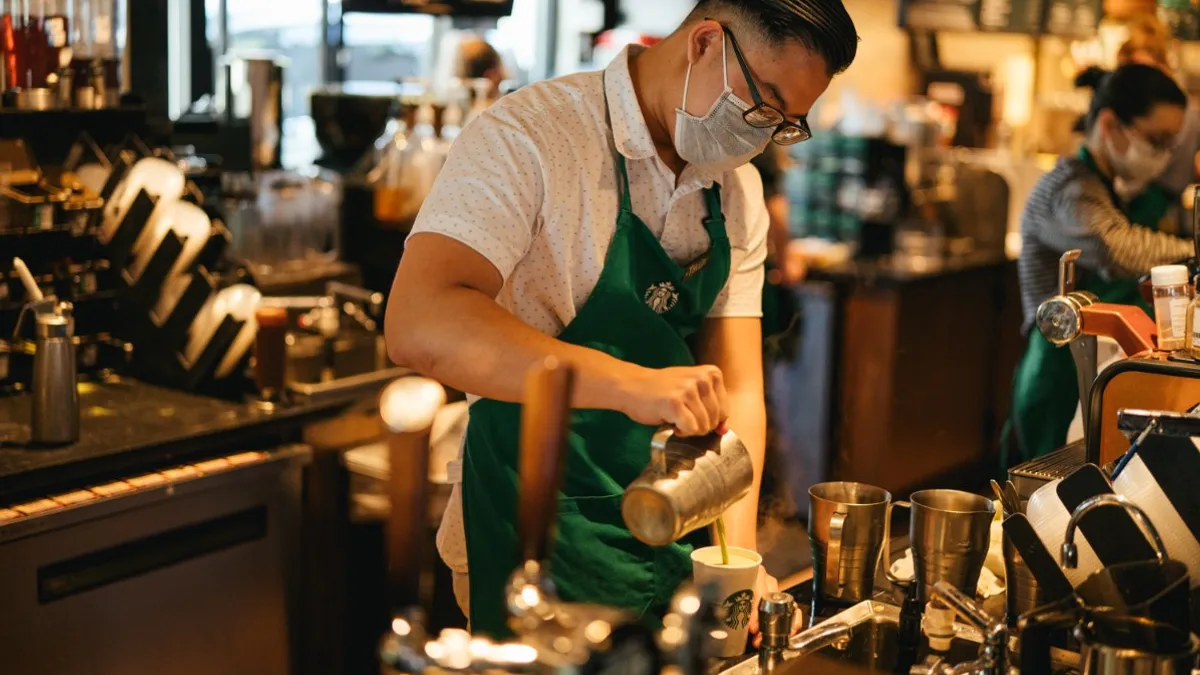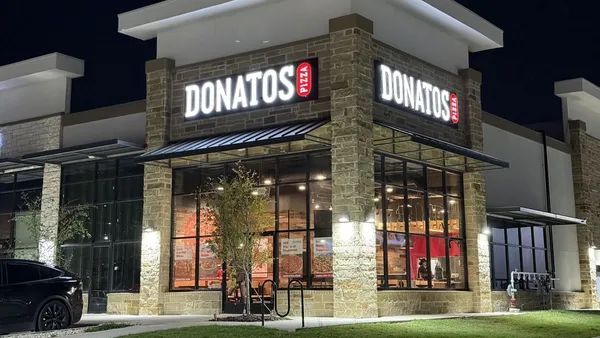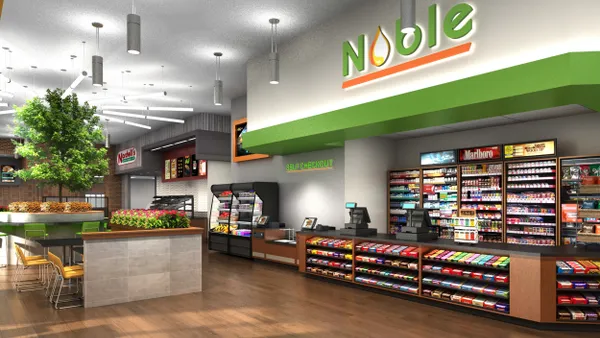Dive Brief:
- Over 30% of Starbucks’ U.S. employees are earning at or above $15 per hour following investments into increasing wages, CEO Kevin Johnson said in a letter posted on the company’s website Wednesday.
- The company aims to pay all of its U.S. employees $15 or more per hour within the next two to three years, he said.
- Starbucks said in November it would increase wages across its domestic employee base by at least 10% starting Dec. 14 for those who were hired on or before Sept. 14. Partners with three years of continued service will get at least an 11% pay increase. Workers began pushing for a $15 minimum wage during the pandemic, with nearly 10,000 signing a CoWorker.org petition.
Dive Insight:
Starbucks was among the first restaurant chains to offer catastrophe pay to employees who were diagnosed or exposed to COVID-19 in March, providing 14 days of pay replacements with the option to extend it to 26 days if an employee was still unable to return to work. Through May 31, it also provided service pay for workers healthy enough to stay on the job. When it began reopening its dining rooms during the summer, it offered employees a COVID-19 Leave of Absence, allowing workers to take unpaid leave through Sept. 30 but still accrue up to 20 hours per week toward benefits eligibility. The company has also offered sick pay to all employees since 2018.
"We will continue [to] explore what more we can do to provide compensation and benefits in support of our partners," Johnson said in the Wednesday letter.
The company has been investing in increasing wages over the last few years, previously setting aside $120 million in raising pay in 2018 that was allocated based on regional cost of living and state laws. The company says it pays above the minimum wage in all states across the country. It has also offered stock options and a multitude of perks, including subsidized child care and adult care, extended family planning benefits and mental health benefits.
Starbucks is also working toward improving diversity and representation so that at least 30% of employees identify as Black, indigenous or people of color at all corporate levels, and 40% at retail and manufacturing roles by 2025. The company will bring on Mellody Hobson as board chairwoman in March after current leader Myron Ullman III retires, and she will become one of the most prominent Black women overseeing one of the largest U.S. company boards.
While increasing wages and offering benefits can be costly and impact a company’s bottom line, they also help increase retention. Starbucks has already been a leader in this sense — the chain's turnover rate was about 65% compared to the quick-service industry average of 150% to 400% in 2014.















